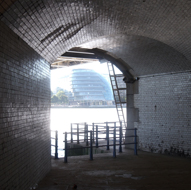A specialist centre seeking to help small and medium sized businesses (SMEs) protect themselves from cyber criminals has opened in central London.
The London Digital Security Centre (LDSC) was among recommendations in the Mayor’s Business Crime Strategy, launched in July 2014. The authorities admit that online security is a growing concern for SMEs, with attacks increasing against them and large corporate businesses.
The LDSC, a limited liability company, brings together for the first time police, technology and business to provide digital security advice and support to London’s SMEs, which employ over two million people across the capital and make up almost half its business turnover, equalling £430 billion.
The Mayor’s Office for Policing And Crime (MOPAC) is providing £325,000 of funding to the centre over two years; then it will become self-sufficient, paid for through revenues from sale of its services and from donations.
The LDSC involves members of the Metropolitan Police’s specialist online crime and fraud FALCON team, the National Crime Agency and the City of London Police, working with academics, and businesses such as Barclays, RBS and BT. It offers cyber industry guidance through its website, roadshows and advice surgeries and provides security assessments and ‘digital footprint’ reports for businesses to identify and resolve vulnerabilities.
The Mayor of London, Boris Johnson, said: “Cyber security is of critical importance to London’s small businesses, which employ millions across the capital and bring in billions to our economy. We want all these organisations to be able to protect themselves from harmful cyber-crime and cyber-enabled fraud. For the first time, small businesses in London will have affordable access to support from the best minds in the digital policing world, alongside those with the know-how to hack into systems and advise on securing them. The London Digital Security Centre builds on the work we’re already doing to support businesses in the digital age and make sure London remains the number one place in the world to do business.”
Stephen Greenhalgh, the Deputy Mayor for Policing And Crime, visited the centre and was shown how a company’s technology systems can be attacked in a demonstration from an ethical hacker, who recreated a hack on a large screen.
Greenhalgh said: “The impact of fraud is devastating, and the digital security of London’s businesses, especially smaller enterprises and entrepreneurial start-ups, is something we take extremely seriously. The new Met FALCON unit, with 300 dedicated officers, is doing some excellent work in our fight against online crime and fraud, but businesses must make securing their digital infrastructure as integral to their business as securing their premises. The LDSC goes a long way to help this, providing a one stop shop to help businesses build up their resilience and protect themselves from online crime.”
The LDSC has taken a model used in Scotland by the Scottish Business Resilience Centre, and has received private sector support, including training from Barclays and RBS, and accommodation from BT; saving £120,000 in the centre’s first year. Visit www.londondsc.co.uk.
Patrick Nuttall, from audit firm KPMG, is head of the centre. He said: “We have consulted extensively with SMEs in London and we know the demand is there for a trusted, affordable resource to provide cyber security advice and support. Digital technologies have transformed small and medium businesses in London, bringing a world of new opportunities for innovation, commerce and efficiency. But going digital also brings with it risks. The LDSC is here to help London businesses – who may not be able to afford the sort of in-house expertise found in larger companies – to identify and manage those risks, enabling them to safely harness the power of technology without breaking the bank.”
Alan Seldon, Operations Director at Voneus, a London-based telecommunications agency which used the LDSC’s services, said: “No company should be complacent about the possibility of being targeted by cyber criminals. Like all SMEs we cannot dedicate a full time resource, so it makes sense to bring in the experts at the London Digital Security Centre to test our systems and to provide advice. A small investment could potentially mitigate against a large loss, and by using the LDSC we are able to protect ourselves as much as possible.”
And Det Supt Jayne Snelgrove, who leads the Met’s fraud and cyber-crime team FALCON, said: “When FALCON was launched a year ago, we highlighted our intention to work more closely with businesses across London, to help them better protect themselves from fraud and cyber-crime. FALCON officers will be working with the LDSC to arm small and medium enterprises with the knowledge and tools they need to help them do so. This, combined with our ongoing work to arrest perpetrators, will make London an increasingly hostile place for cyber criminals and fraudsters.”
Comment
Andrew Conway, Research Analyst at Cloudmark commented: “The opening of the London Digital Security Centre is a commendable and necessary step in dealing with cybercrime. The villains behind cybercrime are often in other countries and hiding behind layers of anonymous proxies or web services. There is very little that the victims or law enforcement can do once the content of a bank account has been transferred. to Kiev or a ransom has been paid in bitcoin. Traditional methods of tracking criminals down simply do not work. The only effective way to deal with cybercrime is to stop it happening in the first place.”
Photo by Mark Rowe: City Hall from the north of the Thames, looking through Dead Man’s Hole, where corpses thrown into the river from the Tower of London and surrounds were retrieved.










